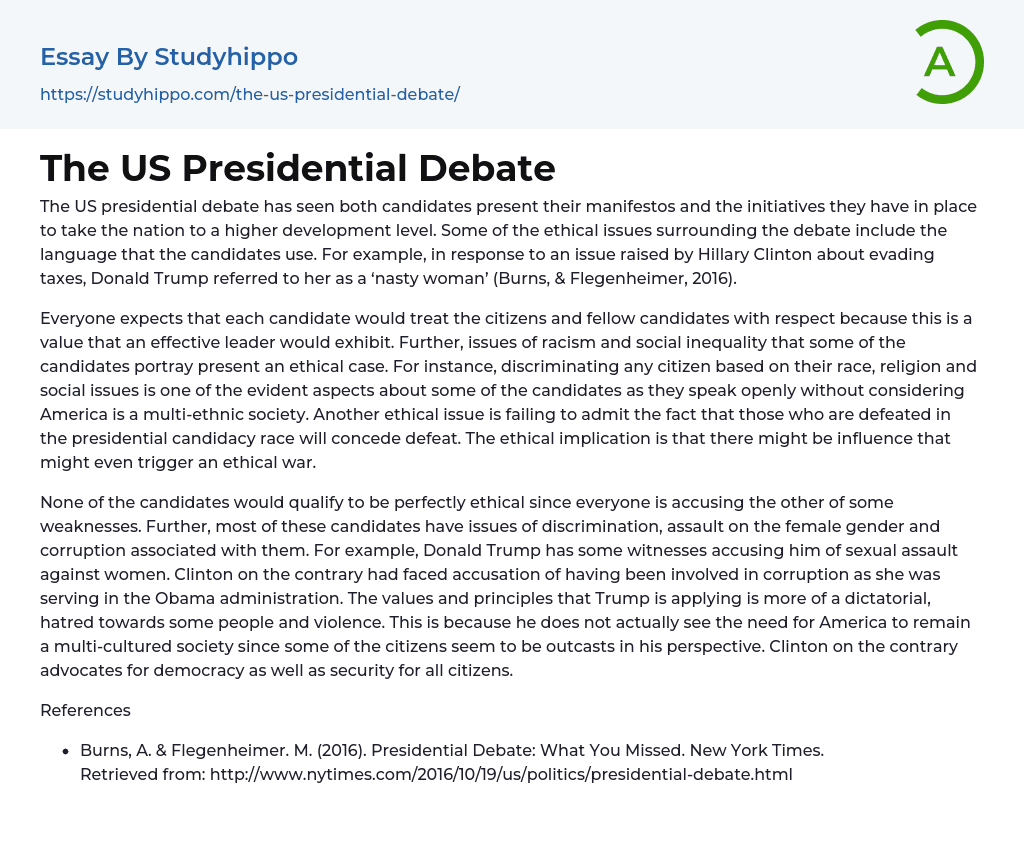The US presidential debate has seen both candidates present their manifestos and the initiatives they have in place to take the nation to a higher development level, while also raising ethical concerns about the language used by the candidates.
In response to Hillary Clinton's concerns about tax evasion, Donald Trump referred to her as a 'nasty woman' (Burns, ; Flegenheimer, 2016). It is expected that candidates would treat citizens and fellow candidates with respect, as this is a trait of an effective leader. However, some candidates display issues of racism and social inequality, which raises ethical concerns. For example, openly discriminating against individuals based on their race, religion, or social issues disregards the fact that America is a diverse society. Additionally, failing to acknowledge defeat in the presidential candidacy race is another ethical problem.
The situation poses ethical concerns and potential conflicts. It i
...s challenging to find a candidate who is entirely ethically sound, as each one has faced accusations of different weaknesses. Furthermore, several candidates have been associated with problems like discrimination, assault against women, and corruption. Donald Trump serves as an example of this; he has been accused by some individuals of sexually assaulting women. On the other hand, Hillary Clinton has faced allegations of being involved in corruption while serving in the Obama administration. Trump's behavior and beliefs appear to align more with dictatorship, hostility towards specific groups, and support for violence.
The text discusses different views on multiculturalism in America. One person doubts the need for a society with multiple cultures, while another supports equal rights and safety for all citizens.
References
- Burns, A. & Flegenheimer. M. (2016). Presidential Debate: What You Missed. New York Times
Retrieved from: http://www.nytimes.com/2016/10/19/us/politics/presidential-debate.html




